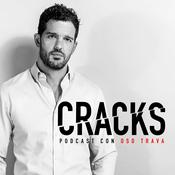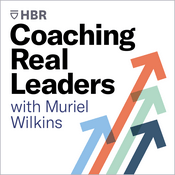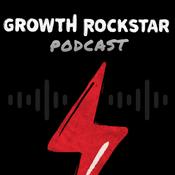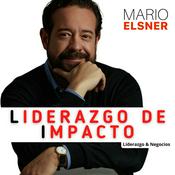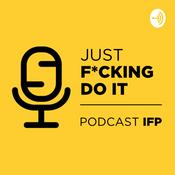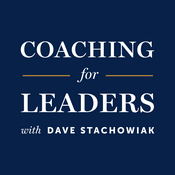32 episodios

Big Data's Limits in Financial Markets (S2, E8)
18/5/2025 | 1 h
Send us a textData drives nearly every aspect of modern life, from the algorithms suggesting what you should watch tonight to the autonomous vehicles navigating city streets. Yet in the world of finance—where you might expect data to reign supreme—the relationship between information and decision-making is surprisingly complicated (and relatively new).Professor Mike Gallmeyer pulls back the curtain on this fascinating paradox, revealing why financial markets present unique challenges for data-driven approaches. While Tesla collects millions of data points daily to perfect self-driving technology, investors working with a century of stock market returns have barely over a thousand data points to analyze. This fundamental limitation—what Gallmeyer calls the difference between "big data" and finance's "small data" reality—creates profound implications for how we should think about investment decisions.The conversation delves into the historical evolution of financial data, from the pre-1960s era when decisions relied heavily on intuition and "soft information," through the development of the CRISP database at the University of Chicago, to today's sophisticated algorithmic trading systems. Gallmeyer explains how market participants continuously adapt to new information sources, creating an ever-evolving landscape where yesterday's winning strategy becomes tomorrow's conventional wisdom. This endogenous change within financial markets makes them fundamentally different from systems where data collection leads to steady, predictable improvement.For anyone fascinated by markets, data science, or the intersection of human judgment and quantitative analysis, this episode offers valuable perspective on the promises and limitations of data-driven decision making. Whether you're managing your retirement portfolio or simply curious about how markets function, you'll gain insights into why certain problems remain resistant to even our most sophisticated analytical tools—and where human judgment still provides irreplaceable value.Show Notes:Dimson, Marsh, & Staunton, Global Investment Returns Yearbook 2025Kim, Muhn, et al., Financial Statement Analysis with Large Language Models (2024)New York Fed Staff NowcastFederal Reserve Bank of Atlanta, GDPNowThanks for listening! Please be sure to review the podcast or send your comments to me by email at [email protected]. And tell your friends!

Supply, Demand & Securities: What Your Economics Professor Never Told You with Aditya Chaudhry (S2, E7)
13/4/2025 | 56 min
Send us a textTake everything you thought you knew about how markets work and prepare for a fundamental rethinking. When NVIDIA's stock price skyrockets after negative news, or the Federal Reserve successfully manipulates interest rates through bond purchases, classical economic theories struggle to explain what we're witnessing in real time.Professor Aditya Chaudhry from Ohio State University joins us to explore the revolutionary concept of "demand-based asset pricing" - a framework that's challenging decades of financial orthodoxy. Traditional models suggest that when investors irrationally pile into a stock, deep-pocketed arbitrageurs should quickly step in to correct any mispricing. But what if there simply isn't enough arbitrage capital available to enforce rational pricing, especially at the macro level?We dive into groundbreaking research showing that shifts in investor demand might impact security prices up to 100 times more than classical theories predict. This "inelastic markets hypothesis" helps explain everything from market booms and busts to why quantitative easing actually works. The implications extend from central bank policy to government debt issuance, potentially reshaping how we interpret market movements.The conversation bridges complex financial theory with practical examples, making sophisticated concepts accessible without sacrificing depth. Whether you're trying to understand the current bull market, puzzling over Federal Reserve decisions, or simply seeking to make smarter investment choices, this episode provides crucial context for navigating today's financial landscape.While uncertainty remains a fundamental feature of markets, the one clear takeaway reinforces timeless wisdom: for most individual investors, passive products remain the most reliable strategy rather than attempting to outguess the market's complex demand dynamics.Show Notes:Supply and DemandGaigax & Koijen, Inelastic Markets Hypothesis (2023)Chaudhry & Li, Endogenous Elasticities (forthcoming)Thanks for listening! Please be sure to review the podcast or send your comments to me by email at [email protected]. And tell your friends!

Mastering Disciplined Investing: Insights with Stephen Parker (S2 E6)
16/3/2025 | 53 min
Send us a textDiscover the secrets of disciplined investing and strategic asset allocation with Stephen Parker, head of specialized strategies at JP Morgan Private Bank. In our conversation, we explore the nuances of aligning investments with personal goals, focusing on the importance of understanding individual needs, investment horizons, and risk tolerance. Stephen shares JP Morgan's insights on long-term forecasts for over 200 asset classes, emphasizing the critical role of maintaining discipline and the power of staying invested over time.Ever struggled with market volatility or wondered how to balance short-term needs with long-term growth? We unpack the concept of bucketing in financial planning, a strategy that segments investments into liquidity, lifestyle, and growth categories to meet various life goals. This approach not only helps navigate market fluctuations but also protects long-term plans from being disrupted by short-term market movements. Learn how strategic asset allocation, rebalancing, and viewing portfolio construction as a series of dimmers and dials can enhance your investment strategy.Join us as we tackle the complexities of economic forecasting, market timing, and the active versus passive management debate. Stephen sheds light on the importance of seeking contradictory information to improve decision-making and the strategic use of alternative investments. Even seasoned investors will find value in the discussion on the role of recessions in investment decisions and the balance between active management and passive strategies. This episode promises a wealth of knowledge to enhance your understanding of disciplined investing, making it a must-listen for anyone eager to sharpen their financial acumen.Show Notes:JPMorgan, 2025 Long Term Capital Market AssumptionsCembalest, Eye on the Market Outlook 2025Marks, On Bubble Watch (Jan 7 2025)Thanks for listening! Please be sure to review the podcast or send your comments to me by email at [email protected]. And tell your friends!

Decoding Commercial Real Estate: Investment Strategies and Market Dynamics with John Sweeney (S2 E5)
16/2/2025 | 1 h 4 min
Send us a textWhat if you could transform your understanding of the commercial real estate market in one insightful conversation? Join me, Edward Finley, as I engage with John Sweeney from Park Madison Partners, who guides us through the complexities and potential of this dynamic sector. Together, we uncover how commercial real estate is anything but a singular asset class, highlighting its diverse components and the significant role location plays in its valuation. From the ripple effects of corporate giants like Amazon on local economies to understanding commercial real estate as a hedge against inflation, this episode provides a comprehensive view of the market's intricacies.Our discussion takes a deeper dive into the strategies investors use to navigate the commercial real estate landscape. We categorize investment opportunities into Core, Core Plus, Value-Add, and Opportunistic, demystifying industry jargon like Internal Rate of Return (IRR) and capitalization rates (cap rates) along the way. By examining how major market shifts and macroeconomic factors affect each investment type, we offer listeners the tools to assess risk and return potential in this fluctuating environment. John shares real-world insights into how recent economic conditions, including post-COVID realities and rising interest rates, have reshaped investor strategies and asset pricing.With an eye on the future, we explore the transformative changes that the commercial real estate market faces today. The evolution of workplace dynamics and the pervasive shift towards high-end office spaces are set against the backdrop of hybrid work models and remote collaboration. As we reflect on the challenges and opportunities these changes present, it becomes clear that active management and strategic foresight are essential. Whether you're a seasoned investor or simply curious about the future of real estate, this episode invites you to consider new perspectives and adapt to a rapidly changing market landscape.Thanks for listening! Please be sure to review the podcast or send your comments to me by email at [email protected]. And tell your friends!

Demystifying Hedge Funds and Private Credit with Craig Bergstrom (S2 E4)
20/1/2025 | 51 min
Send us a textThis episode delves into the complexities of hedge funds and private credit, exploring their distinct roles within investment portfolios. We address the performance challenges of hedge funds over the past two decades and the rising prominence of private credit, considering how both options can coexist as alternative assets in investor strategies. Discussion on misconceptions about hedge funds Overview of various hedge fund strategies and their risksAnalysis of hedge fund performance in relation to equities and bondsExamination of fees associated with hedge fund investmentsInsight on private credit as a growing investment avenueComparison between the roles of hedge funds and private creditUnderstanding the implications of competition on future returnsEmphasis on the evolving landscape of alternative investmentsShow notes:Malkiel, A Random Walk Down Wall StreetLowenstein, When Genius Failed: the Rise and Fall of LTCMThanks for listening! Please be sure to review the podcast or send your comments to me by email at [email protected]. And tell your friends!
Más podcasts de Economía y empresa
Podcasts a la moda de Economía y empresa
Acerca de Not Another Investment Podcast
Escucha Not Another Investment Podcast, Cracks Podcast con Oso Trava y muchos más podcasts de todo el mundo con la aplicación de radio.net
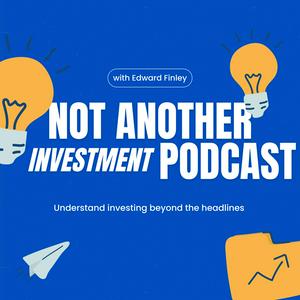
Descarga la app gratuita: radio.net
- Añadir radios y podcasts a favoritos
- Transmisión por Wi-Fi y Bluetooth
- Carplay & Android Auto compatible
- Muchas otras funciones de la app
Descarga la app gratuita: radio.net
- Añadir radios y podcasts a favoritos
- Transmisión por Wi-Fi y Bluetooth
- Carplay & Android Auto compatible
- Muchas otras funciones de la app


Not Another Investment Podcast
Descarga la app,
Escucha.
